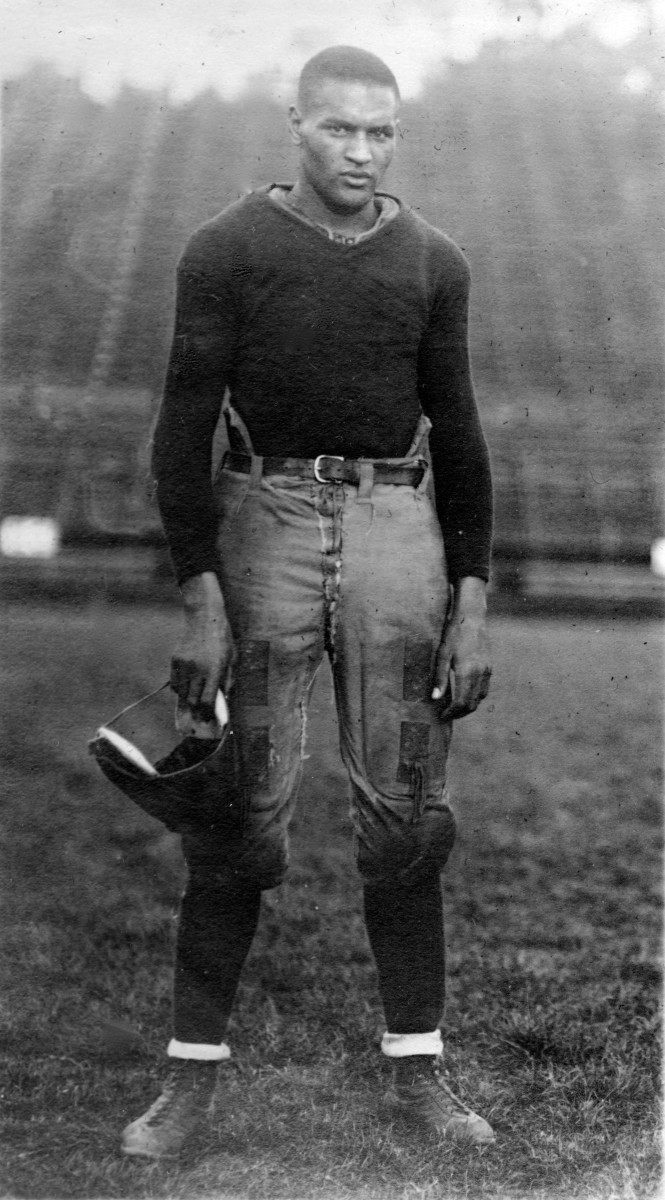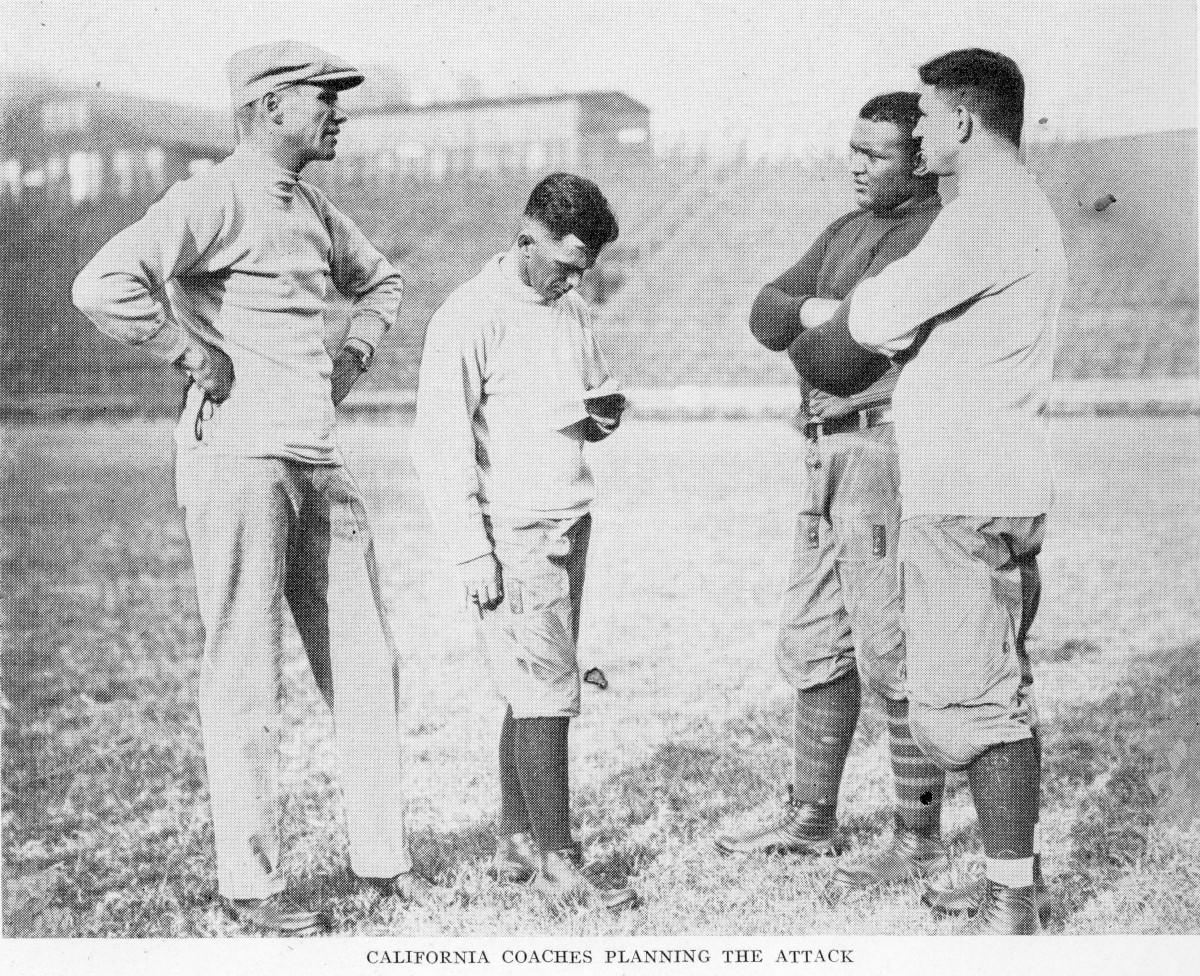The Cal 100: No. 9 -- Walter Gordon
We count down the top 100 individuals associated with Cal athletics, based on their impact in sports or in the world at large – a wide-open category. See if you agree.
No. 9: Walter Gordon
Cal Sports Connection: Gordon was a key member of Cal’s football teams in 1916, 1917 and 1918, and was a third-team All-America selection in 1918. He was also a Cal assistant football coach for 24 years, and he was an outstanding wrestler and boxer at Cal, winning state championships in both.
Claim to Fame: Gordon, the first African American to be a starter on a Golden Bears football team, was the first Cal player to be named All-America and the second African American to be so honored. He was the first African American to attend and graduate from Cal’s Boalt Law School. Gordon was a lawyer, a police officer, a governor of the U.S. Virgin Islands and a federal judge, and he is a member of the College Football Hall of Fame.
.
We debated whether Walter Gordon should be as high as No. 1 or No. 2 on our Cal 100 list. Ultimately the fact that he attended Cal more than 100 years ago affected his candidacy. However, Gordon was so gifted and a pioneer in so many significant ways, it was impossible to leave him out of the top 10. He was the epitome of a man ahead of his time.
The most impressive aspect of his life came soon after his Cal career ended: He was the first African American police officer in Berkeley. He was an attorney with his own private practice. He was president of the Alameda County NAACP. He was vice president of the local chapter of the national lawyers guild. And he was an assistant coach for the Cal football teams that won two national championships.
But the significant aspect was that he did all those things at the same time while he was in his 20s. Furthermore, he was a Cal assistant coach and fulltime police officer while attending law school.
Talk about multitasking . . . .
But we get ahead of ourselves.
The grandson of a slave, Gordon was one of the few African Americans to attend Cal at that time, and was the first to become a starter on Golden Bears football team, beginning in 1916. He played nearly every position on the offensive and defensive lines, and became the first Cal player to be named All-America when he was a third-team All-America selection in 1918 by Walter Camp, whose selections were considered the “official” All-America squad at the time. Perhaps more significantly, Gordon was the second African American to be named All-America (Paul Robeson was a second-team All-American in 1917).

It was not a easy path, as noted by the UC Berkeley Alumni Association via the California parole board website:
“Although he was a star player for the Golden Bears, the laws that called for segregation did not make it easy for Gordon to travel with his team, as he was not allowed to stay at the same accommodations as his teammates.”
Stanley Barnes, a teammate of Gordon's at Cal and a future U.S. assistant attorney general, recalled an incident per the Online Archive of California:
I never heard of this training-table incident, but one incident that I heard Andy [Smith] tell about—this was before I was there, but Andy Smith told us about it. I think it was the year 1916, toward the end of the year, Walter by his ability had won a place on the team and then the question came, should he go on a trip up to Seattle to play Washington? Andy had never coached a negro who was playing on the first string before, and he put it up to a vote of the members of that team. They unanimously voted that Walter had made the team by his ability and should go, that he would go with them. That was therefore arranged. When the team got up to Seattle, they left the train—they all went by train in those days—and Walter disappeared and wasn't seen again until just before the game started. He had gone, I assume, to a negro area of town to take his lodgings for the night and then showed up as though nothing had happened, in readiness for the game.
Cal had respected boxing and wrestling teams in that era, and Gordon was the star of both, winning the California State Championship in boxing and wrestling.
Racism existed in those sports as well, as noted in a 2015 story on the Cal athletics website:
In one such incident, the Stanford boxing team refused to compete against Berkeley due to Gordon's presence. Gordon was forced to sit on the sidelines as another boxer was substituted in his place.
After graduating from Cal while World War I was raging in Europe, Gordon became the first African American to attend Cal’s highly respected Boalt Law School, beginning in 1919. That was also the year he became Berkeley’s first African American police officer and an assistant coach and scout for the Bears football team that would go undefeated for five seasons from 1920 through 1924 and win national championships in 1920 and 1922.

After becoming the first African American to graduate from Boalt Law School in 1922, he established his own private law practice, and he was a fulltime police officer, lawyer and assistant coach all at the same time until 1930. He was a Cal assistant football coach until 1948.
Gordon faced pushback as the first African American police officer in Berkeley, especially when he was placed in a predominately white neighborhood. An excerpt from a 2017 Berkeley News story indicates the challenge:
When some officers came to [Berkeley police chief August] Vollmer’s office to tell him either Gordon went or they did, Vollmer said he was sorry to hear that; they could leave their badges and guns by the door on the way out.
In 1943, California Governor Earl Warren sent Gordon to Los Angeles to head a team whose task was to report on the Zoot Suit Riots, which involved conflicts between American servicemen and Latino residents.
He later served as chairman of California’s parole board for nine years, with a philosophy based on forgiveness and second chances.
“There is no ‘we’ and ‘they’ in our relationship,” Gordon told the Chico (Calif.) Enterprise in 1952 via the California parole board website. “We are all in this world together. There is no separate world for us, and for them, just because many of them have had one moment of emotional explosion in their lives.”
In 1955, Gordon was named Cal alumnus of the year and also was awarded the Benjamin Ide Wheeler Medal, which honors a member of the Berkeley community who has provided years of distinguished service.
The same year President Dwight Eisenhower named Gordon the governor of the U.S. Virgin Islands, and he held that position until 1958, when he became a federal judge of the District Court of the Virgin Islands, serving in that role for 10 years.
Gordon died in 1976 at the age of 81.
The Cal 100: No. 10 -- Matt Biondi
Cover photo of Walter Gordon courtesy of Cal Athletics
Follow Cal Sports Report on Twitter: @jakecurtis53
Find Cal Sports Report on Facebook by going to https://www.facebook.com/si.calsportsreport
